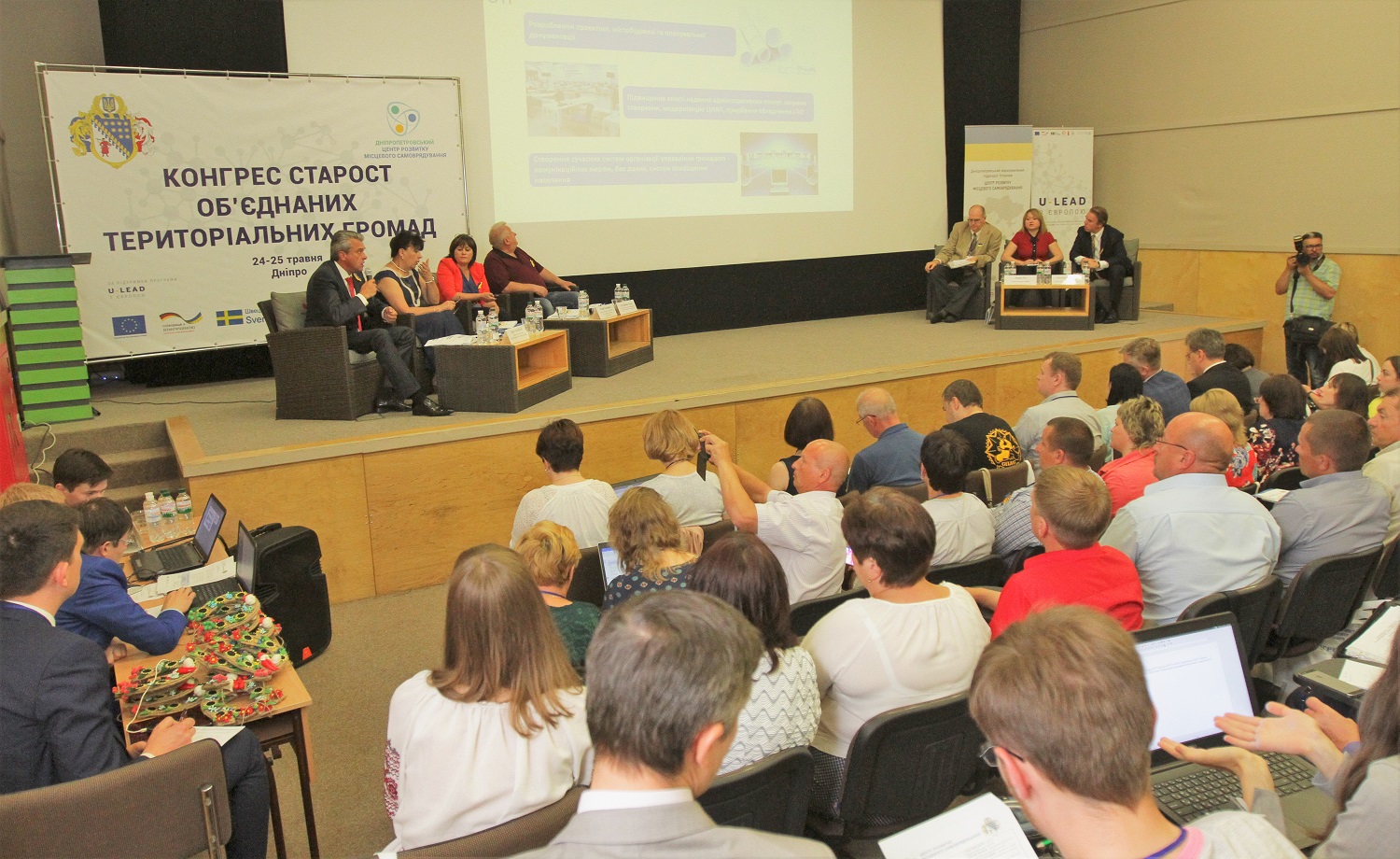"Our starostas do not sit idly..."
The All-Ukrainian Congress of Starostas of Amalgamated Hromadas is being held in the city of Dnipro.
Over 200 starostas from all over Ukraine came to Dnipro to communicate with colleagues and discuss the most acute problems of local self-government. According to Oleh Kuzhman, First Deputy Head of the Dnipropetrovsk Oblast State Administration, there are 110 starostas working in 60 AHs of the oblast, who implement about 1500 various infrastructure projects in their villages.
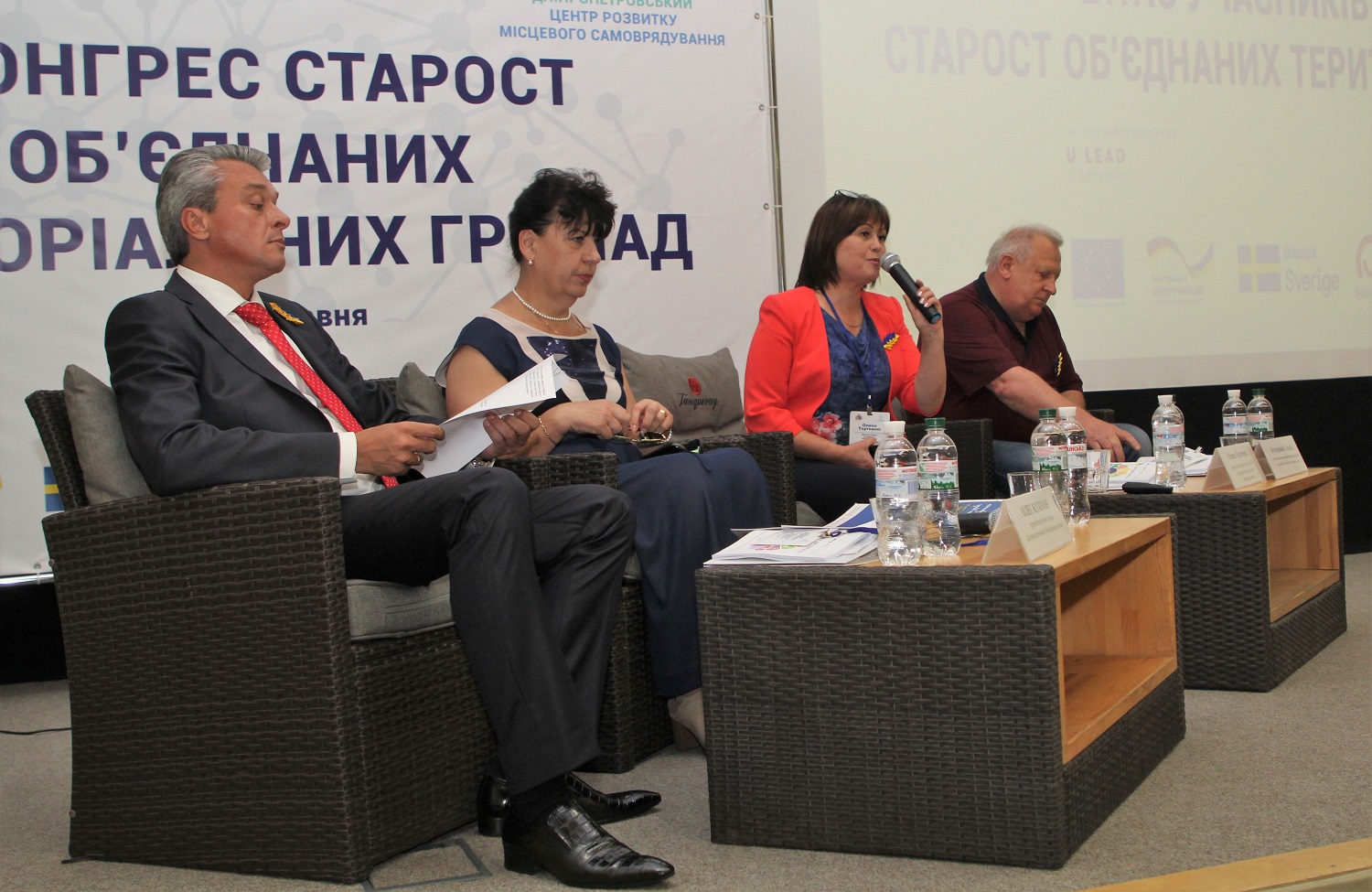
“We believe that the reform of decentralisation of power is fundamental in Ukraine, because it entails a whole range of other reforms,” Oleh Kuhzman said. “The state allocated more than UAH 1 billion to AHs of the Dnipropetrovsk Oblast, and UAH 600 million of them will be used in starosta districts. Each of our AHs has hub schools, and the oblast repairs roads to these schools, purchasing a school bus to each of them. We also fund the establishment of safety centres in AHs. Together with the DESPRO project and other donors, we have almost solved the problem of water supply in the villages of the Dnipropetrovsk Oblast. There are a lot of proposals for hromadas’ consolidation in the oblast, and we contribute to this movement, because we want each hromada to include not less than 15 thousand residents. For 20 years of independence rural areas “were not imprinted with the foot of a builder”, and this is relevant throughout Ukraine. But due to decentralisation, more builders are currently working in villages than in cities.”
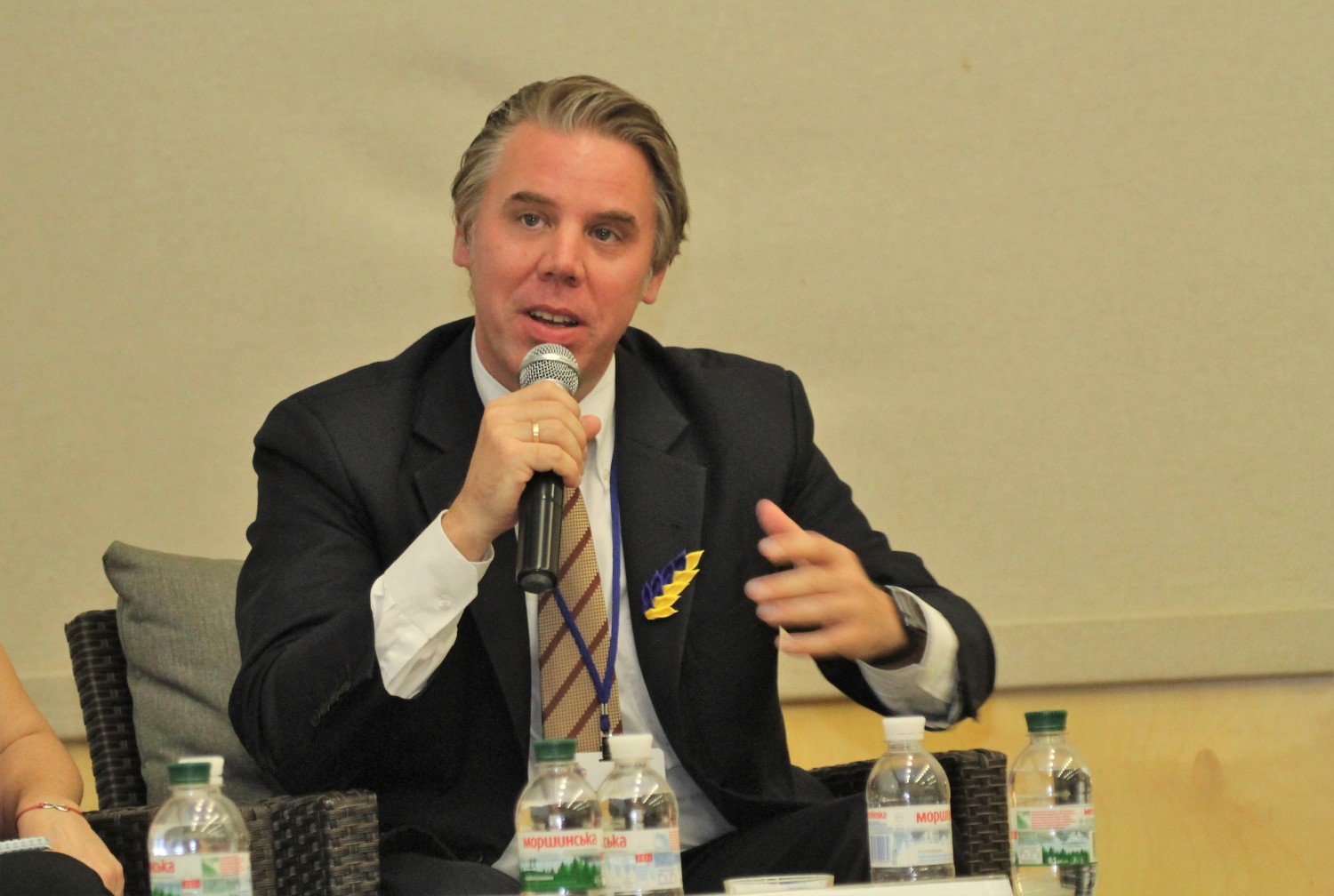
“The Dnipropetrovsk Oblast has been the engine of the reform of decentralisation of power from the very beginning,” added Bastian Veigel, GIZ Programme Director of U-LEAD with Europe. “Now we already have every right to say that the reform is successful. I have recently been to Belgium, where the amalgamation process is currently underway as well, and for the same period as in Ukraine, only 7 municipalities have voluntarily amalgamated there. Though in Ukraine we got over 700 hromadas! This success is determined, among other things, by the successful work of the Institute of starostas.
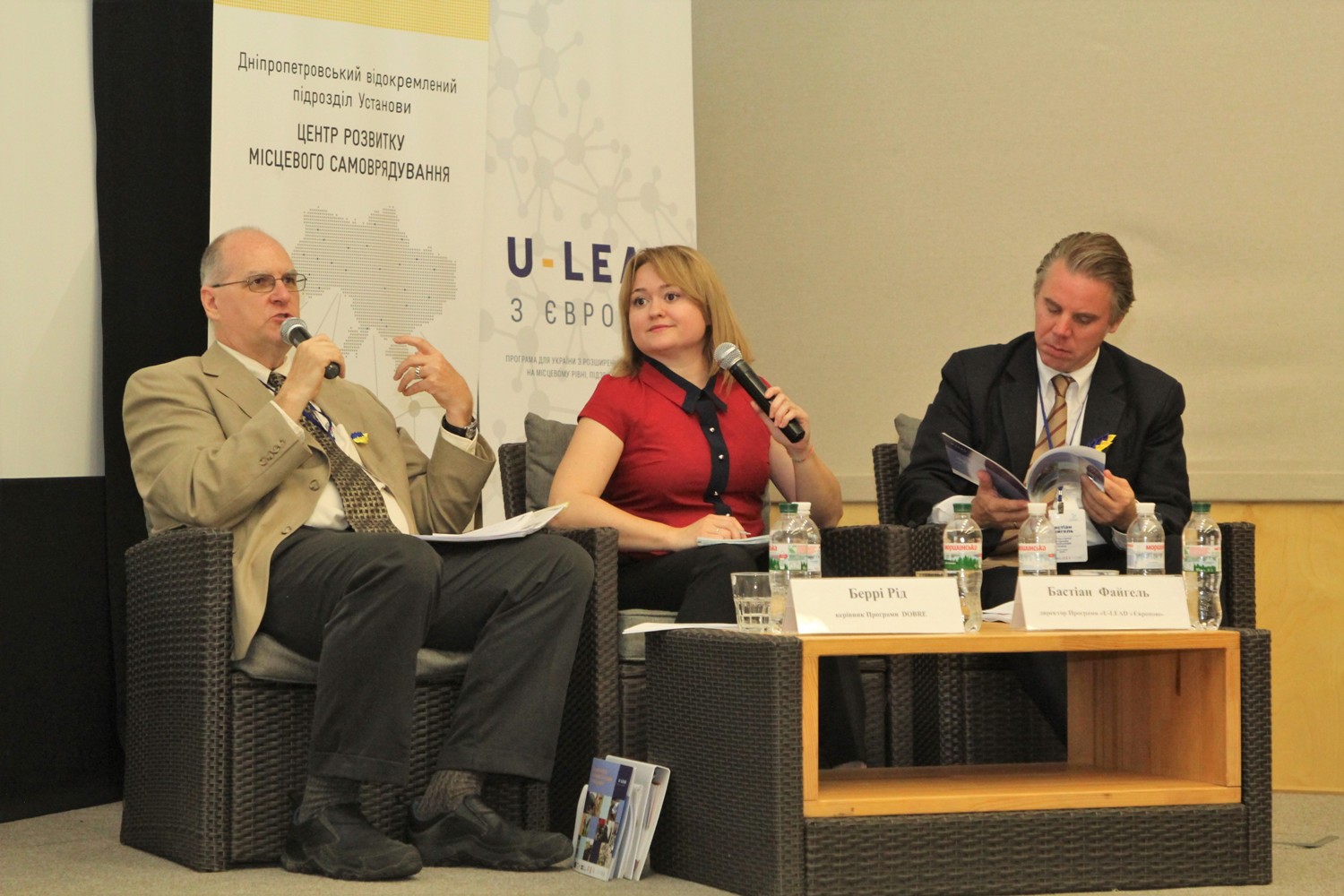
The same idea was expressed by the DOBRE Programme Manager Barry Reed.
“In order for decentralisation to be effective, it needs to attract as many citizens as possible, and starostas have a key position here,” he said. “The success of the reform is possible only if the starostas carry out their duties as best as possible. However, they are not alone in the system of local self-government. Both city mayors and local councils of all levels should work together with starostas for the efficiency of the reform.
Barry Reed also noted that the DOBRE Programme, that has been working with 50 AHs in seven oblasts of Ukraine – the Kherson, Ternopil, Ivano-Frankivsk, Mykolayiv, Kharkiv, Dnipropetrovsk and Kirovohrad Oblasts – starts to select another 25 hromadas for cooperation.
"Thus, if your hromada is located in one of these oblasts, you have an opportunity to cooperate with us," said Barry Reed.
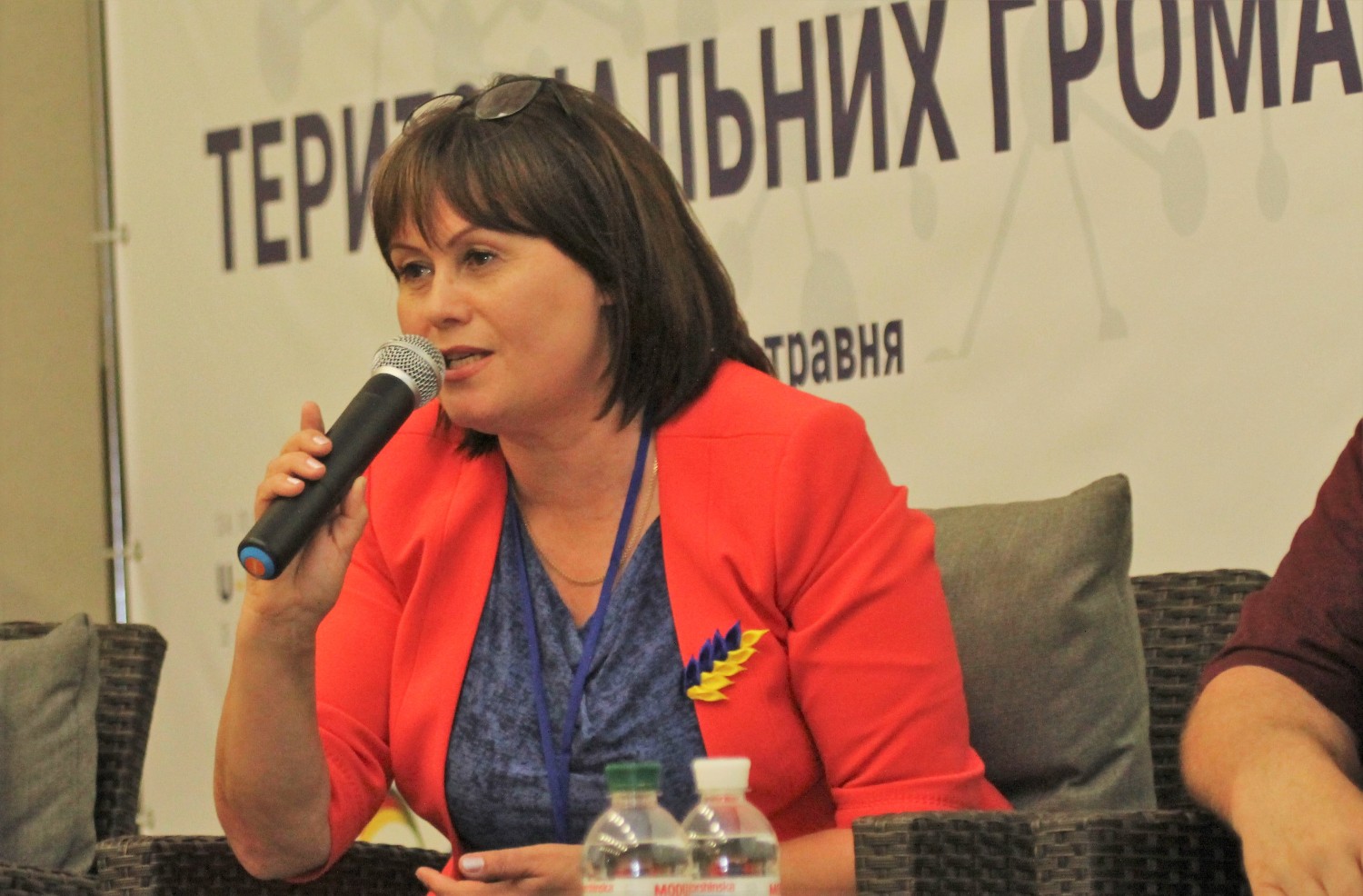
“We have been developing the Institute since 2015, and we are the authors of the first action plan for starostas "8 Steps of a Successful Starosta", that was distributed throughout Ukraine,” said Olena Tertyshna, co-organiser of the event, head of the Dnipropetrovsk Local Government Development Centre. “This year we present already "12 Steps of a Successful Starosta". Today we will exchange the best practices, and tomorrow starostas will visit starosta districts of various hromadas – the Slobozhanska, Solonyanska, Novooleksandrivska and other AHs – of the Dnipropetrovsk Oblast to observe the successful practices. Busides, tomorrow the Congress participants will sum up the results of our meeting and with the help of the "Rada" system will vote for the Congress resolution in the session hall of the Dnipropetrovsk Oblast Council.”
According to Olena Tertyshna, starostas of the Dnipropetrovsk Oblast have something to share with their colleagues from all over Ukraine.
"Some of our starostas are implementing unique projects," she said. “For example, Andriy Pinchuk, during two years of his work, managed to solve water supply problem in his village by winning the DESPRO competition. Oleksandr Prokopenko managed to build a stadium in his village, that some cities could be proud of as well. Olena Kinash arranged completion of construction of the kindergarten, that has had a queue for 6 years in advance. Thus, our starostas do not sit idly. They are looking for solutions to the acute problems of their villages, they are effective managers, real leaders, and people, who change hromadas.
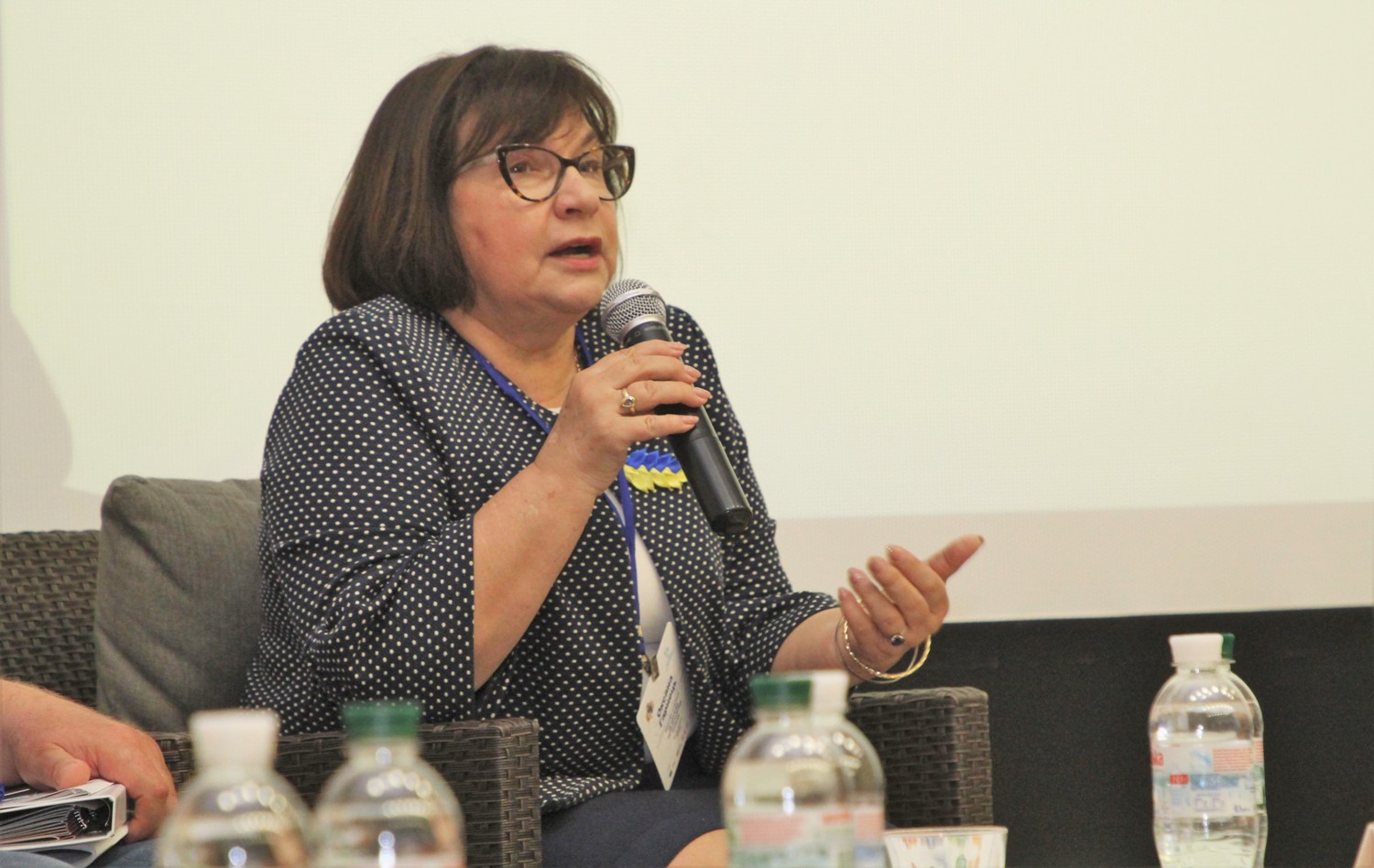
Oksana Harnets, head of the Swiss-Ukrainian project "Decentralisation Support in Ukraine” (DESPRO), spoke about a number of training and information initiatives created by her subordinates.
"In a situation, where the duties are not very clear and the legislative framework is somewhat crude, starostas need special support," said Oksana Harnets.
As previously informed, DESPRO announced new “Starosta” e-course.
20 February 2026
Місцева статистика: Як перетворити розрізнені...
У Києві відбулася стратегічна зустріч "Статистика громад", організована Державною службою статистики України за...
20 February 2026
I_CAN launched a nationwide rollout of its Public Investment Management Training Programme for local governments and...
20 February 2026
Language of Development Part 2: Funds and Instruments of EU Cohesion Policy
Language of Development Part 2: Funds and...
With the “language of development”, we describe not only the goals and principles of EU regional policy, but also...
19 February 2026
Анонс: вебінар «Обговорення змін до Порядку...
Які практичні кроки мають здійснити керівники та педагоги, щоб ефективно впровадити ключові зміни до Порядку...
